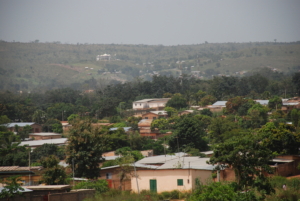Engie Energy Access Providing Electricity to Benin
November 20, 2024
 Despite being one of the least developed countries in West Africa, Benin is taking steps to reach its sustainable development goals, including expanding access to cleaner sources of electricity for its urban and rural population. As a country that primarily relies on importing natural gasses, steps have been taken to give people access to solar energy, a cheaper and cleaner alternative. Engie Energy Access, a French company, has reached a 20-year agreement with the Benin government to build solar panels across the country.
Despite being one of the least developed countries in West Africa, Benin is taking steps to reach its sustainable development goals, including expanding access to cleaner sources of electricity for its urban and rural population. As a country that primarily relies on importing natural gasses, steps have been taken to give people access to solar energy, a cheaper and cleaner alternative. Engie Energy Access, a French company, has reached a 20-year agreement with the Benin government to build solar panels across the country.
Solar grids are a cost-effective, low-carbon energy source and in Benin, they offer a promising solution for expanding electricity access. Currently, 59% of Benin’s population lacks electricity, with most of those affected living in rural areas. This lack of access limits refrigeration, lighting and television availability. Companies such as Engie Energy Access, along with national initiatives such as the Solar Energy Promotion Project and the Renewable Energy Development Program, are leading efforts to increase local energy production.
Mini-Grids Across Benin
Engie Energy Access is working to install mini-grids across Benin, with the first of its kind launched in the southern village of Dohouè earlier this year. Each mini-grid can connect about 1,500 residents and is designed for small towns of similar size. Engie’s current goal is to install 20 more mini-grids in the coming years. This would provide electricity access to approximately 30,000 people.
Each mini-grid from Engie uses a pay-as-you-go payment system, making it more affordable and accessible for residents. These mini-grids have become a priority for both the Beninese government and the private companies providing them. As more Beninese people gain access to cheap electricity, they will be provided with more economic and educational benefits. This, in turn, will help Benin reach its sustainable development goals.
The Impacts
The solar mini-grids being built across Benin are giving families economic opportunities. Women can now keep their shops open after dark, selling more goods. Jeanne Afia Hessou, a merchant in Central Benin, is a direct example of this, “Thanks to the solar kit, I can sell all night long without worry. Before, I had to stop at a certain time. Now, cars are not afraid to stop, so I can sell whenever, day or night.”
When shopkeepers are able to stay open past dark, they can make more money and give their kids the ability to go to school. The kids are also able to study at night with solar power. Previously, families and businesses were forced to resort to kerosene lamps, candles or generators. These options were costly, environmentally damaging and potentially dangerous, as a lamp spilled could lead to a fire.
Final Note
Benin’s goal for 2025 is to achieve 95% urban and 65% rural electrification. However, progress has been slow, with limited action taken so far to meet these targets. In response, the government is stepping up efforts by building facilities to help finance additional renewable energy projects.
– Colin Claffey
Colin is based in Chicago, Illinois, USA and focuses on Technology and Solutions for The Borgen Project.
Photo: Wikimedia Commons
Search
RECENT PRESS RELEASES
Related Post



